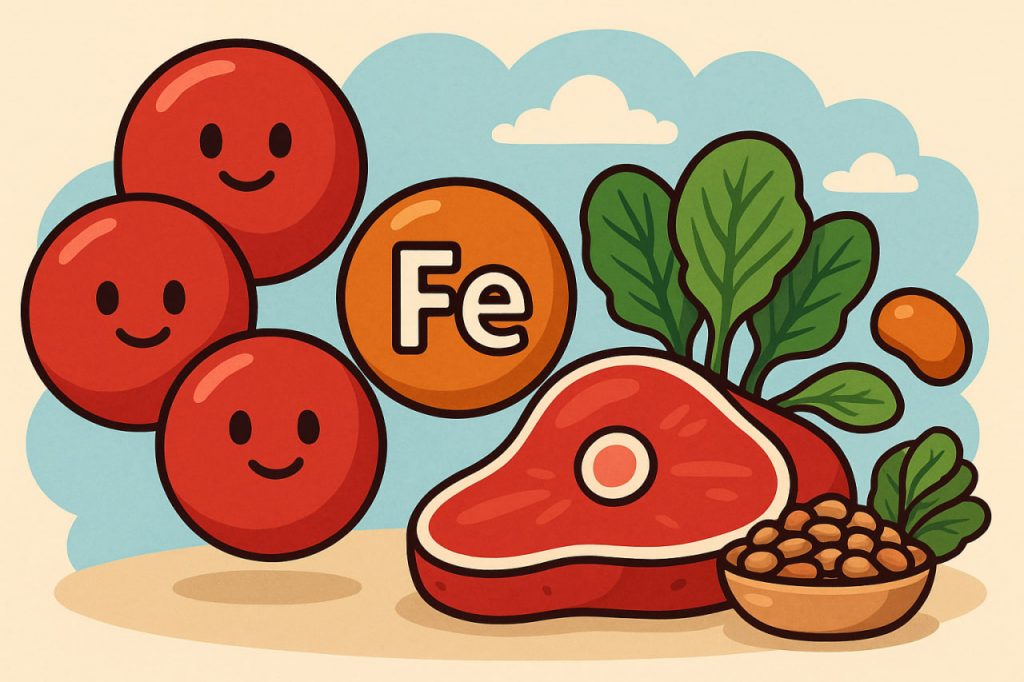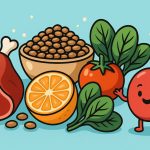Iron is a vital mineral that plays a central role in keeping the body healthy and functioning properly. Although needed in small amounts, it is essential for oxygen transport, energy production, and many metabolic processes. A deficiency in iron can lead to anemia, fatigue, and reduced immunity, while too much iron can also harm the body.
Iron and Oxygen Transport
The most important function of iron is its role in hemoglobin, the protein in red blood cells that carries oxygen from the lungs to the rest of the body. Iron binds to oxygen molecules, ensuring that organs and tissues receive the oxygen they need to work. Without enough iron, the body cannot produce sufficient healthy red blood cells, leading to anemia.
Iron in Muscles
Iron is also a key component of myoglobin, a protein that stores oxygen in muscle cells. This allows muscles to perform physical activity and maintain endurance. Athletes and active individuals especially depend on iron to support performance and recovery.
Energy and Metabolism
Iron helps enzymes involved in energy production. It supports cell growth and metabolism, ensuring that the body has enough energy for daily functions. This is why fatigue is one of the first symptoms of low iron levels.
Immune System Support
Iron is necessary for the proper functioning of the immune system. It helps white blood cells destroy harmful pathogens and strengthens the body’s defense against infections. Both deficiency and excess iron can weaken immunity.
Sources of Iron
There are two main types of dietary iron:
- Heme iron – found in animal products like red meat, poultry, and fish; absorbed more efficiently.
- Non-heme iron – found in plant sources such as beans, lentils, spinach, and fortified cereals; absorption improves when eaten with vitamin C-rich foods (like citrus or tomatoes).
Iron Deficiency and Excess
- Deficiency: Can cause iron-deficiency anemia, leading to pale skin, fatigue, dizziness, and reduced concentration.
- Excess: Too much iron, often from supplements or certain diseases, can damage organs such as the liver and heart. Maintaining balance is crucial.
Conclusion
Iron is an essential mineral for life. It enables oxygen transport, supports muscles and energy production, and strengthens immunity. A balanced diet with adequate iron sources helps prevent both deficiency and excess, ensuring that the body functions at its best.
Glossary
- Hemoglobin – a protein in red blood cells that carries oxygen.
- Myoglobin – a protein in muscles that stores oxygen.
- Anemia – a condition caused by a lack of red blood cells or hemoglobin, often linked to iron deficiency.
- Metabolism – the body’s process of converting food into energy.
- Heme iron – easily absorbed iron from animal products.
- Non-heme iron – iron from plant-based foods, absorbed less efficiently.


